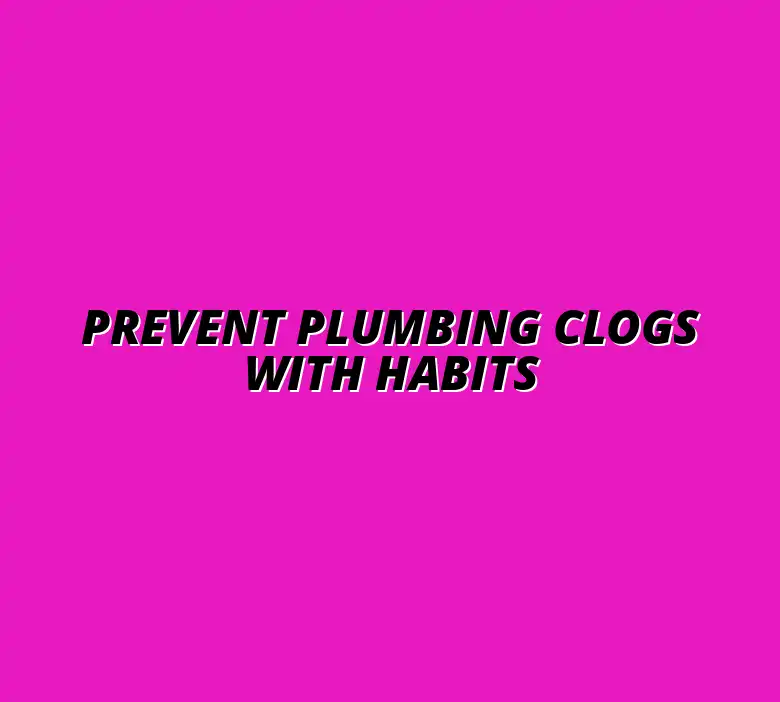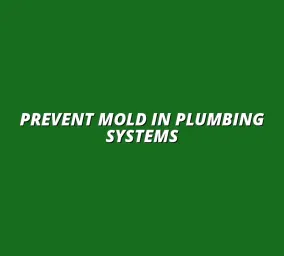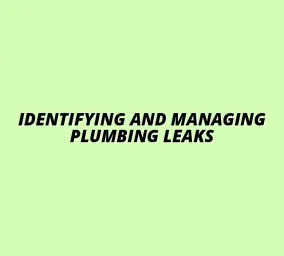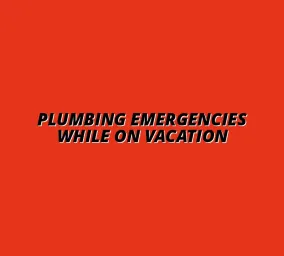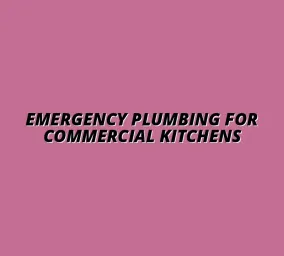Prevent Plumbing Clogs With Habits
Understanding Plumbing Clogs and Their Causes
Plumbing clogs can be both annoying and disruptive, affecting everyday life. Understanding the reasons behind clogs is essential for effective prevention. Many homeowners struggle with clogs, but knowing their causes can lead to easier solutions.
Some clogs are minor, while others can cause significant damage if left unchecked. Addressing clogs early can save you time, money, and stress. In this section, we will explore the importance of preventing plumbing clogs and the common causes found in homes. For immediate solutions to a clogged drain emergency, check out these clogged drain emergency solutions.
The Importance of Preventing Plumbing Clogs
Preventing plumbing clogs is crucial for maintaining a healthy and functional home. Clogs can lead to water backing up, which may damage your plumbing fixtures and create unsanitary conditions. Regularly addressing potential clog sources can help avoid unnecessary repairs and costly plumbing services.
Additionally, by preventing clogs, you can prolong the lifespan of your plumbing system. Establishing good habits will not only benefit you but also your family members. Here are some reasons to prioritize clog prevention:
- Prevents costly repairs and plumbing services.
- Keeps your home sanitary and safe.
- Prolongs the lifespan of your plumbing system.
Common Causes of Plumbing Clogs in Homes
Many factors contribute to plumbing clogs, but some are more common than others. Understanding these causes can help you tackle them proactively. By identifying these culprits, you can implement simple habits to minimize the risk of clogs. Learn more about preventing kitchen sink blockages with these easy tips.
Here are some of the most frequent causes of plumbing clogs found in homes:
- Hair and soap buildup in drains
- Food waste and grease accumulation in sinks
- Foreign objects and debris in toilets
Hair and Soap Buildup in Drains
Hair and soap scum are two of the leading contributors to clogged drains, especially in bathrooms. When hair combines with soap residue, it creates a sticky mass that easily blocks pipes. This buildup can often lead to slow drainage and eventually a complete blockage.
Regularly cleaning your drains and being mindful of what goes down can help prevent this issue. Using a drain strainer can also catch hair, keeping your plumbing system clear. Check out these DIY tips to prevent sink clogs for more helpful advice.
Food Waste and Grease Accumulation in Sinks
In the kitchen, food waste and grease are common causes of clogs. When grease cools and hardens, it can stick to the insides of pipes, trapping food particles over time. This can lead to serious blockages if not addressed promptly.
To avoid this problem, always dispose of grease in the trash and be cautious about what you put down the sink. Using a sink strainer can help catch food waste before it enters your plumbing.
Foreign Objects and Debris in Toilets
We often underestimate how easy it is to accidentally introduce foreign objects into our toilets. Items like toys, sanitary products, and even excessive amounts of toilet paper can lead to significant clogs. When any of these items get stuck, they can create a blockage that prevents proper flushing.
Being careful about what goes into the toilet and educating family members on proper disposal can go a long way in preventing these clogs. Always keep a waste bin nearby for items that shouldn't be flushed!
Addressing Common Questions About Plumbing Clogs
Plumbing clogs can be a hassle, and it's important to know how to tackle them when they arise. This section aims to answer some common questions about dealing with clogs effectively. Understanding the right approach can save you time and money!
What to Do If You Encounter a Clog
When faced with a clog, your first instinct might be to panic, but don’t worry! There are often simple, effective solutions you can try before calling in a professional. Here are a couple of DIY techniques for minor clogs:
- Try using a plunger to dislodge the blockage. Make sure to create a good seal around the drain!
- Use a mixture of baking soda and vinegar. Pour one cup of baking soda down the drain, followed by one cup of vinegar, and let it sit for about 30 minutes before rinsing with hot water.
- Use a plumber’s snake to reach deeper clogs, especially in sinks and tubs.
For more stubborn clogs, knowing when to call a professional plumber is crucial. If you're dealing with multiple clogged drains, it could indicate a larger problem. Consider calling a plumber in Tyseley, Birmingham for assistance here. If these DIY methods don’t work, or if you notice multiple drains clogging simultaneously, it’s time to seek help!
DIY Techniques for Minor Clogs
Minor clogs can often be managed at home with a few handy techniques. Here’s a quick list of methods to clear simple blockages:
- Boiling water: Pour boiling water directly into the drain to help melt away grease.
- Baking soda and vinegar: This natural remedy can break down buildup effectively.
- Using a wet/dry vacuum: This can suck out the clog if it’s within reach.
These methods are typically safe and effective for maintaining your plumbing. However, if the problem persists, don’t hesitate to reach out to a plumber!
When to Call a Professional Plumber
Knowing when to call in the pros can save you a lot of trouble in the long run. Here are some key signs that it might be time to get professional help:
- Multiple drains are clogged at once, indicating a larger issue.
- You’ve tried DIY methods and the clog remains.
- You notice strange smells or sounds coming from your pipes.
Don't be afraid to seek professional help when needed. It can prevent further damage and save you money in the long term!
How Often Should You Clean Drains?
Keeping your drains clean is essential for preventing clogs and ensuring smooth plumbing. But how often should you perform this maintenance? Generally, it’s a good idea to clean your drains regularly, and here’s a recommended cleaning schedule:
- Monthly: Use boiling water or a baking soda and vinegar solution.
- Quarterly: Deep clean drains with baking soda and vinegar, followed by rinsing.
- Annually: Consider a professional drain cleaning service to handle more extensive issues.
This routine can help maintain the functionality of your plumbing and prevent sudden blockages! Simple tips to prevent clogging drains can be found here.
Recommended Cleaning Schedule for Homes
Here’s an effective breakdown of a drain cleaning schedule that can help keep your plumbing in tip-top shape:
- Every month: Pour boiling water down each drain.
- Every three months: Use a homemade cleaning solution.
- Once a year: Hire a plumber for a thorough inspection and cleaning.
Sticking to this schedule can help you avoid the stress of clogged drains!
Signs That More Frequent Maintenance is Needed
Sometimes, you might notice signs that indicate more frequent maintenance is necessary. Here are some red flags to watch for:
- You frequently experience slow drainage.
- Odors come from the drains that weren’t there before.
- Water backs up in one drain when using another.
If you notice these signs, it’s likely time to step up your drain cleaning efforts!
Promoting Long-Term Plumbing Health
To keep your plumbing in great shape for years to come, investing in maintenance products and developing good habits is key. This section will provide you with tips to promote long-term plumbing health!
Investing in Plumbing Maintenance Products
Choosing the right maintenance products can make a big difference in the health of your plumbing. Here are some items worth considering:
- Enzyme-based drain cleaners: These are safe and effective for breaking down organic matter.
- Drain strainers: Perfect for catching debris and preventing clogs before they start!
- Regular inspections: Invest in professional plumbing inspections to catch issues early.
By investing in the right products, you can better protect your plumbing system. It’s all about being proactive! You can also improve your plumbing with a water softener- learn more about preventing plumbing issues with water softeners.
Choosing the Right Drain Cleaners
When selecting drain cleaners, it’s important to choose products that are safe for your plumbing. Here’s what to look for:
- Avoid harsh chemicals that can damage pipes.
- Opt for eco-friendly options that are biodegradable.
- Read reviews and choose well-rated products that have proven effectiveness.
With the right drain cleaners, you can keep your plumbing healthy and clear.
Considering Professional Inspections and Services
Professional plumbing inspections are invaluable for maintaining your system. Here are some reasons to consider scheduling one:
- They can identify potential issues before they become big problems.
- Professionals have tools and expertise to address complex clogs.
- Regular inspections can extend the lifespan of your plumbing.
Investing in a professional inspection can save you from costly repairs in the future! Regular water heater maintenance is also crucial for long-term plumbing health. Check out this water heater maintenance checklist for more information.
Building Awareness and Habits Within Your Household
Creating good habits around plumbing maintenance starts at home! Here are a few strategies to build awareness among family members:
- Educate everyone about proper disposal methods for food and personal care products.
- Set up a family plan for regular drain cleaning tasks.
- Encourage everyone to report any plumbing issues immediately.
By fostering a culture of awareness, your household can play a significant role in preventing plumbing problems.
Creating a Family Plan for Plumbing Maintenance
A family plan for plumbing maintenance can be simple yet effective. Here’s how to create one:
- Assign specific cleaning tasks to each family member.
- Schedule regular family meetings to discuss plumbing issues.
- Use reminders or calendars to keep track of maintenance tasks.
With a solid plan, your family can work together to keep your plumbing running smoothly!
Sharing Knowledge on Clog Prevention with Guests
When you have guests, it’s helpful to share information on preventing clogs. Here are some tips:
- Inform them of what’s safe to flush and what isn’t.
- Encourage them to avoid pouring grease down the sink.
- Provide tips on using strainers in sinks and tubs.
Being proactive can make a big difference in maintaining plumbing health, even with guests around!
Encouraging Proactive Plumbing Care
To wrap things up, let’s discuss how to encourage proactive plumbing care for your home. By promoting good habits and awareness, you can keep your plumbing in great condition!
Summary of Key Habits for Clog Prevention
Here’s a quick summary of some key habits that can help prevent plumbing clogs:
- Regularly clean drains and use boiling water.
- Avoid flushing foreign objects down toilets.
- Educate family members on proper disposal methods.
Implementing these habits can lead to a smoother plumbing experience, reducing the chances of future issues!
Next Steps for Homeowners to Maintain a Clog-Free Home
As a homeowner, taking proactive steps is essential for maintaining a clog-free home. Consider these next steps:
- Establish a regular maintenance schedule for your plumbing.
- Invest in cleaning products and tools for DIY maintenance.
- Stay informed about best practices and share them with others!
With dedication and the right approach, you can ensure your plumbing stays clear and functional for years to come!

